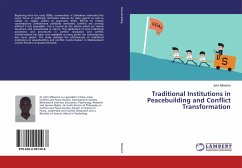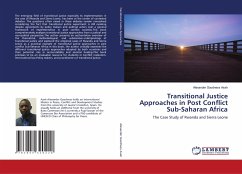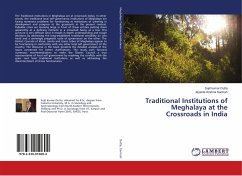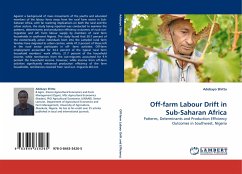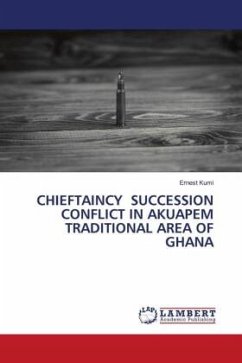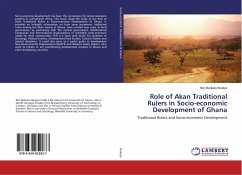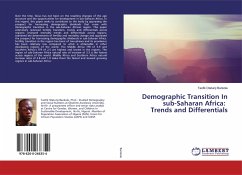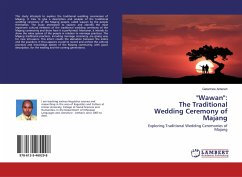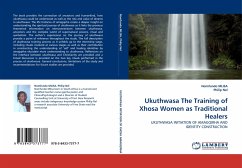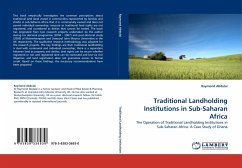
Traditional Landholding Institutions in Sub-Saharan Africa
The Operation of Traditional Landholding Institutions in Sub-Saharan Africa: A Case Study of Ghana
Versandkostenfrei!
Versandfertig in 6-10 Tagen
52,99 €
inkl. MwSt.

PAYBACK Punkte
26 °P sammeln!
This book empirically investigates the common perceptions about traditional land (land vested in communities represented by families and chiefs) in sub-Saharan Africa that it is: communally owned and does not permit individual ownership; insecure as traditional land rights are not registered; and considered as deities that cannot be traded. The book has originated from two research projects undertaken by the author during his doctoral programme (2004 - 2007) and post-doctoral study (2009) at Wolverhampton and Liverpool John Moores Universities in the UK respectively. The qualitative research m...
This book empirically investigates the common perceptions about traditional land (land vested in communities represented by families and chiefs) in sub-Saharan Africa that it is: communally owned and does not permit individual ownership; insecure as traditional land rights are not registered; and considered as deities that cannot be traded. The book has originated from two research projects undertaken by the author during his doctoral programme (2004 - 2007) and post-doctoral study (2009) at Wolverhampton and Liverpool John Moores Universities in the UK respectively. The qualitative research methodology was adopted for the research projects. The key findings are that: traditional landholding is dual with communal and individual ownership; there is a separation between land as property and deities; land rights can be secure whether registered or not and registered land can be contested and lost via civil litigation; and land registration does not guarantee access to formal credit.Based on these findings, the necessary recommendations have been proposed.



